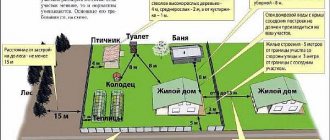A shareholder who is faced with a delay in the transfer of an apartment must certainly know his rights, be able to present demands in a timely manner and, of course, fully recover from the unscrupulous developer a penalty, a fine and moral damages for the delay in the transfer of a shared construction project - be it an apartment, an apartment or a parking space.
- Lawyer services in court
- The developer demands a postponement of the apartment's delivery date
- Violation of deadlines for apartment delivery under DDU
- Representation in court on DDU
- Collection of penalties from the developer in arbitration court
- The developer forces the shareholder to sign the apartment acceptance certificate
- Personal income tax on penalties under a share participation agreement
- Purchasing a DDU penalty for late delivery of an apartment
- Counterclaim for recovery of penalties from the developer
- Pre-trial settlement of disputes with the developer regarding the DDU
Show all
This article provides answers to pressing questions and discusses the rules and procedures - detailed instructions for participants in shared construction.
The legislative framework
The developer’s responsibility for late delivery of the house and the key rights of shareholders are regulated and regulated by several legal documents that have legal force:
- Law “On the Protection of Consumer Rights” - since each shareholder is a consumer of the goods produced (real estate),
- Civil Code (Civil Code of the Russian Federation) - in Art. 15 of the Civil Code states that any person (including a participant in shared construction) whose right is violated is entitled to full compensation for losses caused to him, including losses associated with delays in construction).
- Federal Law No. 214-FZ. This law (in particular Article 6 and Article 8) indicates the need for the developer to comply with the deadline for transferring the property under construction and guarantee its quality.
Also, some amendments, changes and innovations established by separate resolutions of the Government of the Russian Federation and the Supreme Court of the Russian Federation may have legal significance.
A crisis is a crisis - everyone suffers
The activities of developers are closely related to the general economic situation, which determines the demand for housing, as well as changes in prices for building materials and transport services. During periods of crisis, there is a decline in demand, it becomes increasingly difficult for developers to sell their real estate; when demand falls, it is not easy to sell apartments at the planned price; they have to revise and reduce it. In the absence of additional funding (which, again, is not easy to obtain during a crisis)
Problems may arise with the completion of construction, and accordingly, the deadlines for the construction of real estate are violated.
In turn, the developer’s client wants to get his apartment as quickly as possible, since postponing the transfer of housing is associated with costs. Many apartments were purchased with a mortgage, and until the property was transferred into ownership (registration of a mortgage encumbrance in favor of the bank)
the borrower is forced to pay the loan at a higher interest rate
(up to 2.5% higher)
. Some shareholders do not have their own housing and are forced to continue paying for a rented apartment until the developer delivers the finished housing.
When does the delay begin?
Delay in the transfer of an apartment (apartment/car space, etc.) acquired under a share participation agreement in construction (not as part of a standard purchase and sale transaction), in accordance with Law No. 214-FZ, begins to apply from the day following the last day of transfer of housing, specified in the share participation agreement.
But there are several points that are worth paying special attention to. For example, the terms of the contract do not always indicate exact dates. More often, only some deadlines are indicated, for example, “in the third quarter of 2021” or “within 6 months from the date of receipt of permission to put the house into operation.” Thus, the consumer is misled about the exact period of the developer’s obligation to transfer the apartment.
The period for transferring an apartment under an equity participation agreement must be clearly stated in the agreement (in the DDU), and a separate clause of the agreement is usually devoted to this. If a specific date is indicated in the document, then the delay begins from the day following it.
The DDU may indicate that the developer plans to transfer housing within a certain period of time after putting the house into operation, for example, within one quarter, three months or even a year. And then the delay begins on the day following the end of the specified transfer period. If the exact date of commissioning of the house is not noted in the contract, then the period for transferring the apartment is counted from the specified approximate or maximum period for the developer to receive the RVU (permission to commission).
For example: the DDU states “The completion date for the construction of the house is the 3rd quarter of 2021. The deadline for transferring the apartment is within 6 months from the date of receipt of permission to put the house into operation.
In the above example, the housing completion date is 03/31/2021. Moreover, if the developer receives permission to put the house into operation, for example, on September 10, 2020 (that is, before the end of the 3rd quarter of 2021), then the final transfer deadline will shift to March 10, 2021. And if he receives permission to put the house into operation with a delay (after the end of the 3rd quarter of 2021), then the housing delivery date will not change and will still remain - 03/31/2020.
Article 8 of Law No. 214-FZ states that the developer must notify all shareholders at least one month in advance about the upcoming deadline for the transfer of apartments. Participants in the DDU, after delivery of such notices (delivered in person or sent by mail with mandatory notification of receipt), must begin acceptance within seven working days (unless a longer period is specified in the DDU), that is, they agree with the developer on the date of inspection of the property and come for inspection.
If a citizen who bought an apartment under a shared participation agreement does not accept it for two full calendar months that have passed from the date on which the developer notified that the housing was ready for transfer, then the developer by law has the right to sign the transfer acceptance certificate unilaterally, that is without meeting with the equity holder and without the latter inspecting the home. This is only possible if the housing does not have significant construction defects or if the participant in shared construction did not show up to inspect the apartment in principle.
If the developer does not have time to complete the construction of an apartment building on time, then no less than two months before the end of the housing transfer period specified in the DDU, the developer is obliged to notify about this, and also invite them to sign an additional agreement to postpone the housing construction period. However, this is the responsibility of the developer, and not his right, therefore the buyer of real estate in a new building has the right not to sign the additional agreement proposed to him to the DDU and subsequently demand compensation in the form of a penalty for delays in construction.
What if you signed the agreement?
If the terms of the additional agreement comply with the law, the construction company acted in legal ways, and the shareholder signed, being of sound mind, the only thing that remains is to wait for the new date of delivery of the object.
However, sometimes an agreement can be declared an invalid transaction in court. This is possible, in particular, if the agreement is signed:
- under mental/physical influence;
- under the influence of deception;
- in violation of current legislation;
- incompetent citizen, etc.
A complete list of grounds for declaring a transaction invalid is contained in the Civil Code of the Russian Federation.
For example, quite often developers include in the DDU a clause stating that the shareholder does not have the right to refuse to sign an agreement to postpone construction. If, nevertheless, a refusal is received from the citizen, the company can terminate the contract unilaterally. It is clear that such conditions do not comply with the law, but shareholders who are far from jurisprudence sign agreements for fear of losing their apartment.
In this case, citizens should judicially invalidate both the controversial provisions of the DDU and the additional agreement. If the court makes a positive decision, the parties return to the “starting point”, that is, to the originally agreed upon date of delivery of housing.
What should a shareholder do in case of delay?
If the developer has delayed the transfer of housing in the house under construction, then the buyer has the legal right to demand:
- penalty for delay in delivery of housing or apartments (parking spaces)
- compensation for losses incurred by the shareholder due to failure to receive the apartment on time under the DDU (for example, expenses for rent, overpayment of interest on a mortgage loan, increase in the cost of repairs)
- compensation for lost profits (for example, if the purchased property was planned to be rented out to generate income)
- a fine of 50% of the amount of the penalty (according to the Law on the Protection of Consumer Rights of Russia)
- compensation for moral damage caused (awarded by the court automatically, although in small amounts)
- reimbursement of legal costs (for example, for lawyer’s services, preparation of documents, payment of state fees when filing a claim in court)
- termination of the contract for participation in shared construction
When the delay in delivery of the house exceeds two months, the buyer by law has the right to unilaterally terminate the equity participation agreement and return the entire amount of money previously paid for it with interest for the entire term of the agreement. In order to notify the developer of the planned termination, a corresponding letter is sent. Also, the written notice indicates all the main details of the shared construction agreement (number, date of signing, registration information). The contract is considered automatically terminated on the day the correct notification is sent. After receiving this notification, the developer has 20 working days to pay off all claims of the shareholder on a voluntary basis.
Upon termination of the DDU, any developer undertakes to return the entire amount paid and equal to the contract price. The construction company also pays interest on the long-term use of funds received from a participant in shared construction. The amount of the specified interest is calculated according to the formula - 1/150 of the Central Bank rate for each day, starting from the date of transfer of funds to the company until the day the entire amount is returned back to his bank account.
If the developer requires you to sign a deed
When a house is practically built, but there is no official permission to put the house into full operation, developers sometimes resort to tricks and offer participants in shared construction to sign acceptance certificates in advance. This happens in cases in which the building is completely ready, but the apartments are unfinished, lack water supply or heating, the adjacent common area has not yet been improved, or other deficiencies and shortcomings are discovered. It often happens that the developer proposes to sign the specified transfer and acceptance certificates without indicating a specific date for signing the act, and later puts dates in them retroactively or at the date that is most beneficial to the company itself in order to evade liability.
You should not agree to sign the transfer deed, since this document is considered to have no legal force, that is, invalid. With such an act, the housing will not be registered with the BTI, the buyer will not become the full legal owner and will not receive cadastral and technical passports indicating the exact area in square meters, layout and other parameters of the property. Also, the buyer of real estate will not be able to apply for a property tax deduction.
If a developer forces you to sign a deed in the absence of permission, he will certainly act illegally and contradict Art. 8 Federal Law No. 214-FZ, in order to avoid the collection of penalties and to deceive the participant in the ongoing shared construction.
There is another case, which is also manipulation on the part of the developer in order to reduce the costs of compensation due to the buyer under Law No. 214-FZ. The house is ready and officially completed overdue, and you are going to sign the deed, but in the text of the deed (in the standard form of the deed offered by the company for signing) you see an indication that “the parties do not have any financial or other claims against each other.” By signing the said act, you seem to agree that you will not sue in the future, since you “voluntarily renounced claims against him.” This is what you start thinking after signing the deed. However, such wording in the transfer and acceptance certificate is in fact not valid, does not deprive you of the right to go to court for delays and any construction defects in housing, since such wording in the act is nothing more than a “trick” of the developer, or as is now fashionable to be expressed as an “element of social engineering”, which is often abused by real scammers, artificially creating in the victim the belief that he has no rights to anything. However, developers often use such methods of “interaction” with buyers of apartments in residential complexes and mixed-use complexes. Therefore, you need to be as vigilant as possible and not relax, to attract qualified lawyers to your side to check all the signed documents both when concluding a transaction for the purchase of housing in a new building, and when receiving it under the act upon completion of construction. Unlike realtors, who usually act in the mutual interests of the parties to the transaction, receiving their commission, developers act in the transaction only in their own interests, pursuing only one goal - making a profit, and in the process of achieving this goal they often infringe as much as possible on the rights and legitimate interests of the participants shared construction.
What to do in this case? The most correct thing is to invite a qualified lawyer to negotiate with the developer instead of you and advise you on what documents and what wording you should sign and what not. However, if you are ready to take a risk and do without a lawyer, then you can try to insist on the exclusion from the act of the wording “no claims”, “full compliance of the object with the requirements of the law and the share participation agreement”, etc. - unless you really agree with it. You can also simultaneously prepare and send a claim to the developer regarding the timing and quality of construction, if the deadline has been missed, and the quality of construction does not suit you, and you have demands to eliminate identified deficiencies in the constructed property.
Compensation for moral damage and payment of legal costs
In addition to paying a penalty (fine)
When breaking the contract, the shareholder may also demand compensation for moral damage. True, in this case, the shareholder should not count on an amount commensurate with the amount of the penalty; as a rule, the court estimates moral damage at several tens of thousands of rubles.
As with any lawsuit, the plaintiff may seek to have all legal costs paid by the defendant. This rule also applies to relations between the developer and the shareholder in the judicial sphere.
When to collect penalties and fines
When is it better to collect a penalty from the developer for delay? Can this be done before receiving housing or is it better to file a claim in court after signing the transfer and acceptance certificate? Such questions are most often asked by equity holders. At the same time, some people first prefer to wait until they receive housing, and only then apply for a penalty. This seems “safer” to them, since apartments are not purchased every day and most do not have legal literacy in this matter.
The best time to collect penalties (forfeits and fines under Law No. 214-FZ) is while the developer is under construction or in the active phase of transferring completed apartments. This is the best time because at this time the developer has maximum business activity and his bank accounts have funds to settle obligations to all shareholders and counterparties for all types of obligations.
A little more time will pass, the developer will transfer the apartments and, in order to evade responsibility and maximize profits, will withdraw funds from the accounts, thereby depriving buyers of the opportunity to quickly execute writs of execution directly through banks. Everyone knows that enforcement proceedings for a debtor’s debts through the bailiff service is a much more labor-intensive and time-consuming procedure, which does not always end positively. And the fact that we live in Russia and the integrity of many companies is in big question - this, for sure, no one doubts.
As for the frequently asked question “will the developer do anything bad to me if I sue him,” the answer is very simple: “the shareholder’s obligation to the developer is considered fully fulfilled after payment of the full price of the share participation agreement, and then he does not owe anything else and bears practically no other responsibility to the developer, but, on the contrary, only the developer himself owes and is obliged to the shareholder - starting from the completion of construction without delay, and ending with the proper quality of the transferred real estate. The developer cannot do anything bad to the buyer in connection with the latter’s legal appeal to the court with a claim for delay in transfer of the apartment (apartment, parking space). And all illegal actions will be immediately suppressed by the relevant government authorities and for illegal actions the persons who committed them will suffer appropriate punishment. All developers know this and therefore, as a rule, abuses on their part do not occur. Currently, the Russian construction industry is well regulated and controlled by the state, and the rights of equity holders are reliably protected. The only thing missing is qualified legal support. However, this is why there is a legal community, specialized law firms that provide qualified assistance in various areas of law and protect the rights of certain individuals.
Thus, the best moment to begin the procedure for collecting a penalty from the developer for a delay in the transfer of an apartment (or apartment) is the beginning of this delay. In this case, it does not matter whether the apartment has already been transferred under the transfer and acceptance certificate, or whether the shareholder is still waiting for a postal notification from the developer about the completion of construction and the need to come for inspection and acceptance of housing.
In fact, you can demand payment of a penalty for late transfer of an apartment after one month has passed from the beginning of the said delay. First, a claim is written to the developer, and then (if the requirement for voluntary payment of the penalty is not met) a statement of claim is filed in court.
This active approach to the issue of collecting penalties has additional advantages: 1) the developer will pay attention to the most active buyers and satisfy their demands as a priority (this is a fact from practice), 2) shareholders will have time to collect the penalty while the developer is financially solvent, unlike those , who does not apply for foreclosure immediately and risks facing a lack of funds in the developer’s account after completion of construction and transfer of apartments to all buyers (also from practice).
Important! You can file a lawsuit to recover a penalty from the developer for violating the delivery deadlines for housing under the DDU both before the final signing of the acceptance certificate of the object, and after the signing of the transfer and acceptance certificate.
When delaying the moment of full collection of the penalty, remember that the completion of the stage of transferring housing to shareholders continues (as a rule) by zeroing out the developer’s accounts and avoiding responsibility), remember also about the statute of limitations, which is three full calendar years, starting from the first day of the beginning delays.
Do I need to terminate the contract with the developer?
Article 9 214-FZ gives the shareholder the opportunity to independently refuse the DDU if the developer delays the delivery of the property by more than 2 months. In court, a citizen can terminate the DDU if he has good reason to believe that the company will not meet the allotted deadlines. However, is it worth doing?
If the developer’s financial position is stable and the waiting period is relatively short, it makes sense to demand a refund and interest payments. If you are ahead of other investors, the chances of receiving all the required amounts are very high.
However, if the developer is in a financial hole and is about to go bankrupt, it is not recommended to terminate the DDU. It is better to be included in the register of transfer of residential premises in the future, since then the apartment will be excluded from the bankruptcy estate and cannot be sold at auction. Otherwise, the shareholder risks being left without money and without housing.
We count the size
How to calculate the penalty for late delivery of a purchased apartment in an apartment building, what kind of legal compensation is due to the shareholder for the delay in putting the new building into operation and transfer of housing? Let's do the math.
The penalty for late delivery of housing is calculated according to the formula defined by law, which is specified in Art. 6 Federal Law No. 214-FZ. The amount of the penalty is one three-hundredth of the refinancing rate (key rate) established by the Central Bank of Russia for each day of delay, multiplied by the price of the DDU and multiplied by 2 (two) - provided that the shareholder is an individual - that is, a consumer. And if this is a legal entity or an individual entrepreneur, then the amount of the penalty is determined by the same formula, but without multiplying by 2 (two).
Thus, the formula for calculating the penalty includes four figures:
- Contract price (in rubles) – the amount specified in the DDU, paid to the developer
- Key rate (in %%)
- Number of days of delay (delay in transfer of shared construction object)
- Multiplier 2 (two) – if the shareholder is an individual
Let's look at the calculation of late penalties using an example. The price of the object under the contract is ten million rubles. The delay in delivery of a house during shared construction is 90 days. Let's assume that on the day the overdue period expired the key rate was 4.5%. To calculate the amount of the penalty, you need to multiply the Contract Price by the key rate, multiply by 90 days, multiply by 2 (two), then divide by 300. Thus: 10000000*4.5%*90*2/300 = 270 thousand rubles.
The developer is obliged to voluntarily pay this amount after receiving a claim from the latter for late delivery of the apartment under the DDU.
If the developer voluntarily does not pay the specified amount within 30 days, then the participant in the shared construction prepares a statement of claim to the court and already in court has the right to receive, in addition to the specified amount, a fine in the amount of 50% of the amount of the penalty. That is, the requirements increase by another 135,000 rubles.
Advice! If you do not know how to calculate the penalty for late transfer of your apartment, then use the special calculator posted on our website and contact our law firm for advice. We provide consultations on the calculation and collection of penalties free of charge.
Calculation of penalties
Note!
when calculating the penalty, it is necessary to take double , and not the key refinancing rate.
Example of penalty calculation:
The cost of the apartment is 5,000,000 rubles
Number of days overdue - 100 days
The current refinancing rate (December 2021) is 8.5%
5,000,000 * 100* 8.5% * 1/300 * 2 = 283,333 rubles
This amount is due to you by law, but in fact the courts reduce this penalty by applying Art. 333 Civil Code of the Russian Federation.
How to collect the required penalty
How to collect a penalty for late delivery of a house under a shared construction agreement?
The most correct way is to contact a specialized law firm that has many years of experience in this work and a good reputation in the market.
You can also collect on your own, but then be prepared for numerous trips to the courts, banks, bailiffs and even an unfavorable outcome of the case. As a rule, when collecting on your own, you will additionally lose money due to the fact that the court will reduce the amount of the penalty due to you more significantly than when working with a law firm. Simply because you will not be able to professionally and reasonably defend your legal position and legally accurately object to the arguments of the construction organization.
Please note that from April 03, 2021 to January 01, 2021 in Moscow, the Moscow region and all other regions of Russia, Government Decree No. 423 of April 02, 2020 is in force, according to which the collection of penalties and penalties from the developer for failure to fulfill contracts and contractors are not carried out and are postponed until January 1, 2021 (unless further extended). This means that until January 1, 2021, all Russian developers are exempt from any liability for failure to fulfill their obligations to any of their clients and their partners and contractors (subcontractors, etc.). We do not know why this exemption from liability was provided to the developers and we will not judge the correctness and appropriateness of this decision, but we must take it into account.
It is also necessary to pay attention to the fact that until 01/01/2021, in accordance with the specified Decree of the Government of the Russian Federation, developers also have a deferment of fulfillment of obligations for penalties and penalties for earlier violations and delays that occurred before 04/01/2020.
How to prove that the developer is late in delivering the house?
How can you prove that the developer is delaying delivery of the house? A citizen may need:
- DDU and additional agreements to it. The contract specifies when the shareholder will receive his/her housing (most often a specific date is agreed upon).
- Notification from the developer about the postponement of construction with a proposal to conclude an agreement.
The absence of a transfer deed is also confirmation that the shareholder did not receive the apartment.
The court also has the right to send its requests to the competent authorities on the issue under investigation. Thus, in particular, he can obtain information about when the construction permit was issued, whether the validity period of the document was extended, whether the developer submitted an application to put the high-rise building into operation, etc.
Pre-trial settlement
If a developer in the Russian Federation delays the deadline for the mandatory delivery of a house and the delivery of housing under a shared construction agreement, then the penalty for delay under the DDU must be collected, starting with drawing up a claim to the developer.
A claim is filed using a standard form and in writing. In the letter of claim, you should list all the requirements for the construction organization (necessarily referring to legal norms), indicating the calculation of the penalty, your personal data, contacts, details of the agreement for participation in shared construction (date of delivery of the apartment/apartment/car space, etc., number and date of the agreement, characteristics of the DDU object), as well as your payment details (bank name, bank BIC, recipient’s bank account number) for transferring money. Be sure to indicate the date of the application and put your signature.
Important! If you have already signed the transfer deed, then when calculating the amount of the penalty for late payment, the entire period of delay until the actual date of signing the transfer and acceptance deed is indicated. If, on the day the claim is sent to the developer, the act has not yet been signed, then when calculating the amount of the penalty, the period elapsed from the start date of the delay until the date of preparation and submission of the claim (inclusive) is taken into account.
It is better to send a completed claim to the developer at its current legal address indicated in the information about the legal entity from the Unified State Register of Legal Entities on the website of the Federal Tax Service of Russia. The claim should be sent by a valuable letter with a list of the attachments, the receipt for sending and the second copy of the sent claim should be kept.
Acceptance, verification, processing and response to the claim statement received by the construction company must be carried out within a reasonable time, not exceeding 30 calendar days. If the answer is positive, the buyer receives money. And this happens in approximately 1 in 1000 cases (from practice). If the developer’s response is negative or your request is ignored (that is, in the remaining 999 cases out of 1000), you have the legal right to file a similar claim in court.
When is it better to terminate the contract?
The lack of confirmation of what the developer claims regarding the postponement is already grounds for not signing the agreement. For example, a developer talks about the lack of materials necessary to continue work, and builders at a construction site say that the material is there, they just haven’t seen a salary for the third month, and many are quitting.
In this case, there are obvious financial problems for the developer - and this is a serious reason to doubt that the construction can be completed in the foreseeable future and to think about how to get back your money (paid under the DDU and compensation, fines, other payments)
.
In addition, the absence of any warning regarding the postponement, the absence of an offer to sign an additional agreement is a wake-up call. Perhaps the best solution would be to send a letter of termination as quickly as possible, wait a couple of weeks and go to court.
Collection through court
If the penalty for late delivery of housing under the current DDU is not voluntarily paid by the developer, then a claim should be filed in court. The statement of claim is sent to the court of general jurisdiction at the place of registration of the shareholder or at the place where the share participation agreement was concluded. Less often, in cases where it is convenient for the buyer, the statement of claim is filed in court, which has jurisdiction over the area (address) of legal registration of the developer company.
The claim indicates the demands, the name of the judicial authority, the details of the defendant and the plaintiff himself, the date, list of attachments, signature of the applicant, the amount of the requested penalty (with fines and compensation, if necessary). It is necessary to attach to the statement of claim documents that are relevant to the case: a copy of the DDU, a copy of the transfer deed (if any), a copy of the submitted claim with the developer’s response to it with a shipping receipt, as well as additional documentation confirming the transfer of funds by the shareholder and the absence of his debt to developer.
After the claim is accepted, a preliminary hearing (conversation) is scheduled, then the main meeting takes place, at which the court makes a decision on the amount of the awarded penalty, fine, amount of moral damage, legal and other costs (if they are supported by documents and were previously stated in the claim). A month after the decision is made, it comes into legal force, after which the plaintiff has the right to request and receive a writ of execution, with which it is subsequently sent to the developer’s bank or to the FSSP to write off the amount of the penalty from the defendant’s account to his own bank account.
Important! Each of the parties to the trial may well disagree with the results of the consideration of the case and the decision made and, within thirty calendar days from the date the court makes the final decision, file an appeal. In this case, the process of considering the case continues and the collection of penalties from the developer is delayed for an additional 2-6 months (from practice). The appellate court sometimes reviews the decision made by the trial court, but, as a rule, the court's decision remains unchanged.
50% penalty in favor of the consumer
For failure to comply with the shareholder's request to pay a penalty, the court may also give a 50% fine of the amount of the claim.
The claim must also include moral damages. You can indicate any amount, but in fact the court gives an amount from 1,000 rubles. up to 50,000 rub. You can count on an amount of 50,000 or more if there are documents indicating moral suffering.
Recommendations
To do everything correctly, minimize risks and avoid mistakes, follow these useful tips:
- When collecting a penalty from the developer, calculate the amount of the penalty correctly
- If the deadline for the delivery of housing has been postponed without your knowledge or consent, then this deadline for postponing the transfer of the apartment/apartment is also included in the period of delay for which the shareholder is entitled to a legal penalty
- A trusted law firm will help you determine the jurisdiction of a case or choose the right court in order to increase the efficiency and speed of collecting penalties.
- If you do not have legal experience or free time, or you want to entrust the collection of penalties to a professional, contact us
- Cooperation with a specialized law firm always brings additional advantages for the client, in addition to completely freeing his time from issues of collecting penalties under the tax law.
- Demand a penalty from the developer immediately as soon as it arose, without waiting for the developer’s final completion of construction and transfer of the property according to the deed
- Penalties for delays under the DDU may be collected through the court simultaneously with claims for damages, fines and compensation for moral damage.
- The trial may take several months, and when appealing a court decision, the period may increase by several months
- To apply to the arbitration court, which considers only claims from individual entrepreneurs (IP) and legal entities (LE), you can assign your claims to the individual entrepreneur or legal entity and the new creditor (assignee) will file a claim in court
We hope that in this article we were able to answer pressing questions regarding the calculation and judicial collection of penalties under an equity participation agreement. Thank you for taking the time to read this article, and we wish you success in protecting your rights and legitimate interests.
Penalty calculator
Developers who paid penalties to our clients
Our cases
- Recovered: RUB 1,634,800.
We collected 1.6 million rubles (206%) for deficiencies in the decoration of the apartment according to the DDU from FSK Leader More details - Investment is not recommended
How we saved the client RUB 14,665,500. investment Read more
- Recovered: RUB 898,735.
The developer "Lotan" paid the shareholder 274% of the market cost of eliminating the defects Read more
- Recovered: RUB 2,415,243.
How a shareholder received 2.4 million rubles. from “StartSK” on the agreement to terminate the DDU Read more
- Recovered: RUB 1,180,500.
The court recovered 537% of the cost of eliminating deficiencies from PIK-Region More details
- Recovered: RUB 21,394,502.
How to get 21 million rubles. upon termination of a contract for an object worth 9 million. Read more
- Recovered: RUB 14,500,000.
As a developer, Mayak paid 14.5 million rubles. for the war he started Read more
- Inclusion in the register of transfer of housing
How we overcame the bankruptcy trustee and joined the register Read more
- Recovered: RUB 2,260,000.
How we squeezed 2,260,000 rubles out of crooked window profiles from the developer LSR Object-M Read more
- Investment is not recommended
How an analysis of a counterparty helped save RUB 3,385,679. More details
- Recovered: RUB 641,094.
We collected more than 215% of the cost of eliminating defects from the Lotan developer More details
- Recovered: RUB 2,200,000.
Collection of 2,200,000 rubles from BM-Stroy for poor quality repairs in an apartment Read more
All cases
Going to court
If the developer delays the construction of housing, a penalty can be collected from him in favor of the participants in shared construction. Federal Law No. 214 protects the rights of shareholders, so the latter can safely go to court.
Before the shareholder files a claim, he needs to calculate the penalty collected from the developer. To learn about what to demand and what the result might be, read the article “How to calculate and claim a penalty for shared construction from a developer.”
The statement of claim may contain additional requirements to the court:
- Compensation for losses, for example – payment for a rented apartment due to late delivery of housing by the developer.
- Compensation for moral damage.
- A 50% fine - if you sent a claim to the developer, but he refused to pay the penalty voluntarily (or did not respond to the letter).
- Reimbursement of legal costs, for example, for the services of a lawyer, notary, and examinations.
Litigation over unfulfilled contractual obligations has objective difficulties. It is not enough to know the laws; you need to take into account the characteristics of the prisoner. Taking into account the specifics of the client’s case, our lawyers can collect debts in arbitration court. To do this, you need to cede the right to claim a penalty to an individual entrepreneur or a legal entity, since Arbitration Courts resolve disputes between entrepreneurs and companies. Our lawyers will help with the analysis of the problem and will bring the matter to the execution of the court decision.
Researching the developer
Important! Please keep in mind that:
- Each case is unique and individual.
- A thorough study of the issue does not always guarantee a positive outcome. It depends on many factors.
To get the most detailed advice on your issue, you just need to choose any of the options offered:
- Use the online chat in the lower corner of the screen.
- Call: Federal number: +7 (800) 511-86-74
To understand whether it is worth terminating the contract, you need to carefully study the situation in which the developer finds himself. Based on the financial condition of the LLC that the house is worth, you can understand whether it is worth trying to return the money, or perhaps it is worth waiting.
- Go to the general meeting of shareholders, listen to what the developer’s representatives say. If they claim that their difficulties are temporary and provide adequate arguments in their defense, then it may be worth giving them a chance.
- If the conversation is absolutely not transparent and comes down to only promises, or even silence, then this is a reason to be wary.
In the second case, it is necessary to monitor the media - local news agencies often publish information that the organization involved in the construction of a house is starting to have problems. It may be worth going to the Arbitration Court website and studying the developer’s LLC in the file of cases - there you can find out whether the developer is going to go bankrupt. If the situation is not in your favor and you understand that the house will not be completed, you need to start understanding the legal field and try to terminate the contract and return the money.







